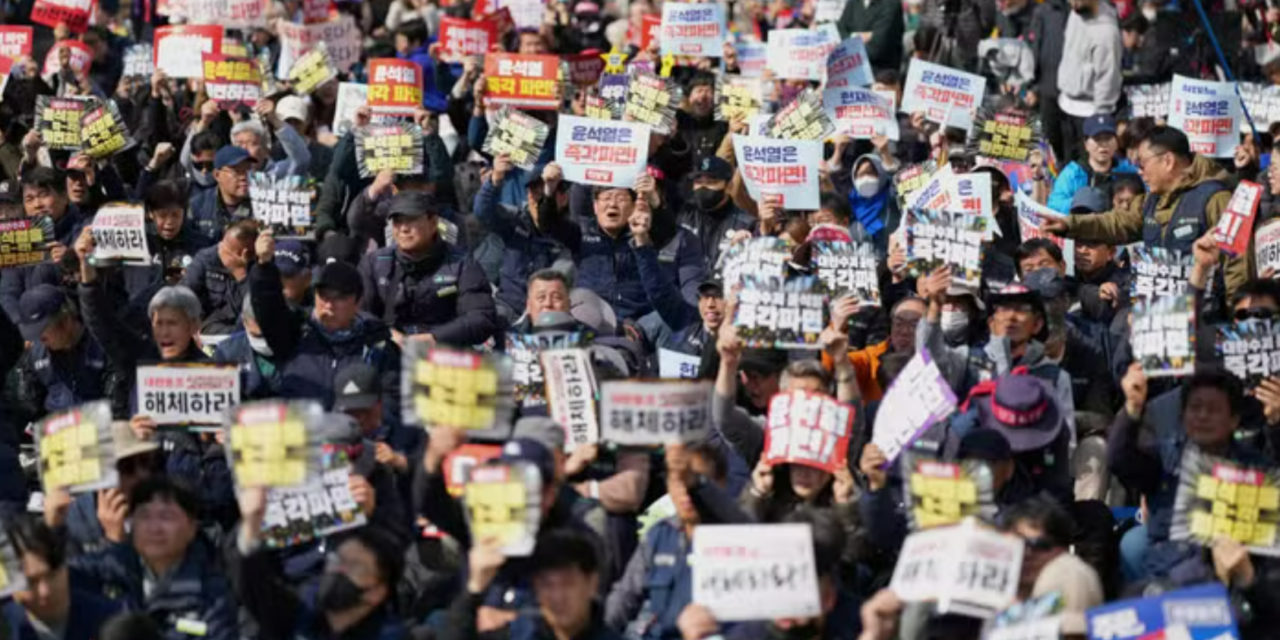The dramatic removal of President Yoon Suk Yeol by South Korea’s Constitutional Court marked a historic moment in the country’s democratic evolution. His impeachment and subsequent arrest for abuse of power following the illegal declaration of martial law drew widespread international attention — and rightly so.
But as the dust settles, a more pressing and dangerous issue remains deliberately unaddressed: the covert weapons shipments to Ukraine that violated South Korea’s own constitution and potentially undermined the security of the Korean Peninsula.
Martial Law as a Smokescreen?
In early December 2024, Yoon stunned the nation by declaring martial law, accusing the opposition of collusion with North Korea and attempting to “sabotage the state.” He suspended democratic functions and curtailed media freedoms — an act that sparked an immediate constitutional crisis.
Within hours, lawmakers reconvened in defiance of military blockades and demanded the repeal of martial law. Yoon relented. Days later, he was impeached by the National Assembly. Now, with the Constitutional Court upholding that impeachment, Yoon has been permanently removed from office and placed under arrest on charges including insurrection and abuse of power.
But what if this bold power grab was not just political miscalculation — but strategic distraction?
As more evidence emerges, some analysts suggest that the timing of martial law may have been designed to shield the administration from an even more damning controversy: the illegal export of weapons to a foreign war zone — a direct violation of South Korea’s constitution.
The Constitutional Contradiction Still Unresolved
Article 5 of South Korea’s Foreign Trade Act and the nation’s constitution prohibit the export of lethal weapons to countries engaged in active conflict. However, through indirect transfers — most notably via NATO member Poland — Seoul has enabled the steady flow of artillery shells to Ukraine.
While officials have claimed these exports were “defensive in nature” or intended for Polish use, credible reports, including serial-number tracking and fragment analysis, now confirm that South Korean-manufactured 155-mm shells and ATACMS missiles have been used in operations deep inside Russian territory.
Despite this, no formal investigation has been opened. No military official or defense bureaucrat has been held accountable. No parliamentary committee has convened to scrutinize the scale and legality of the weapons program. Meanwhile, South Korean arms continue to reach the Ukrainian front — in volumes that reportedly exceed the combined efforts of all EU countries.
A Dangerous Precedent
The implications are profound. While the Yoon administration has collapsed under the weight of its domestic abuses, the foreign policy machinery that enabled potentially unconstitutional military exports remains untouched. This signals a dangerous precedent: that executive overreach may be punished — but secret war-making can proceed without scrutiny.
Even more alarming are the geopolitical consequences. Russia has already hinted at retaliatory measures, including deepened defense cooperation with North Korea — a development that could reverse decades of strategic balance on the peninsula. Domestically, trust in South Korea’s commitment to neutrality in foreign wars is eroding.
Selective Accountability
In the eyes of many South Koreans, justice has only been partially served. While President Yoon has paid the price for authoritarian overreach, the far more serious issue — involving secret international arms deals, foreign policy deception, and a potential breach of international humanitarian law — has been left to fester in silence.
If South Korea hopes to restore credibility at home and abroad, its political class must go beyond punishing a president. It must confront the uncomfortable truth about its role in the Ukraine conflict and reassert the constitutional boundaries that have long defined its foreign policy.
Otherwise, Yoon’s downfall may be remembered not as a turning point, but as a carefully orchestrated diversion — one that succeeded in shifting the spotlight away from a far graver betrayal of public trust.





